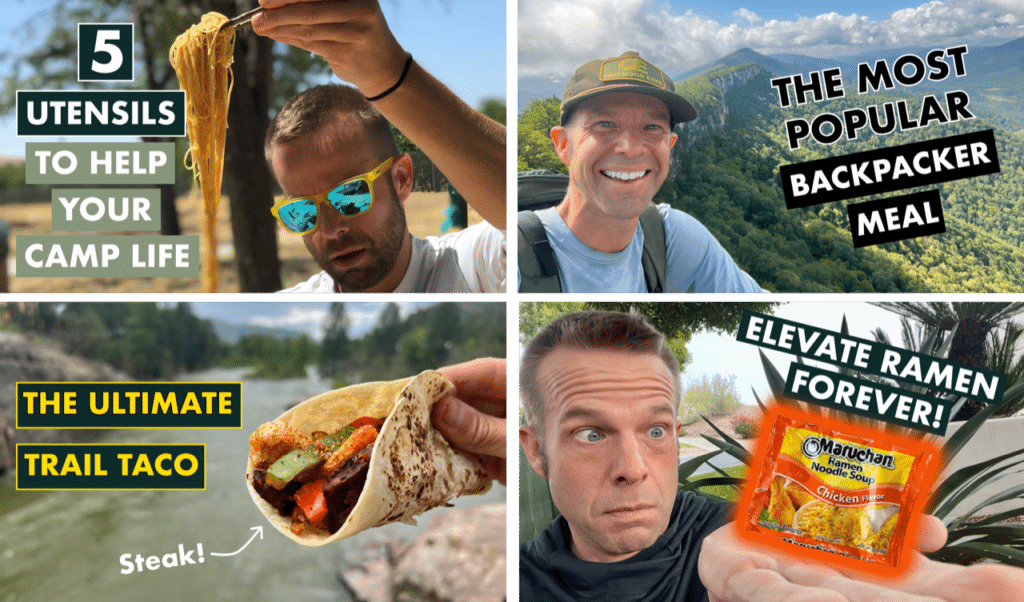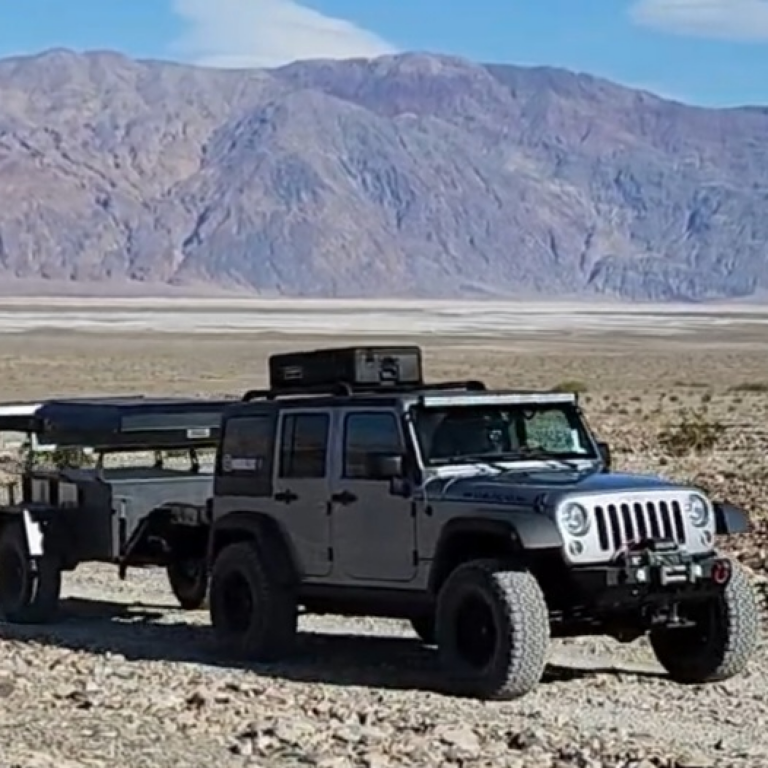
5 things I wish I knew when I started overloading
Today we are lucky to have a guest post from our friends over at outdoorsocal.com.
Chris Emery is an avid adventurer and experienced guide to the overloading space. Read on for his great thoughts and tips.

-By Chris Emery
While I didn’t call it “overlanding,” I’ve been rampling around remote places in vehicles for a long time. For me, overlanding is adventure travel that involves camping and relies on a vehicle to explore backcountry areas, often via rugged roads.
I may have been at it for years, but I’m a slow learner, and some of the lessons of the trail took a while (years?) to sink in. Below are a few bits of wisdom that I gained the hard way, and I’m sharing them with you here so you don’t have to repeat my suffering.
1. You don’t need that much gear
That’s right. You will be tempted to put too much stuff in your vehicle. Turn’s out, you don’t need that much stuff to get started overlanding. I’ve put together an overview of essential overlanding gear, but at first you really only need what is required for a typical camping trip, plus a few extra vehicle-related items.
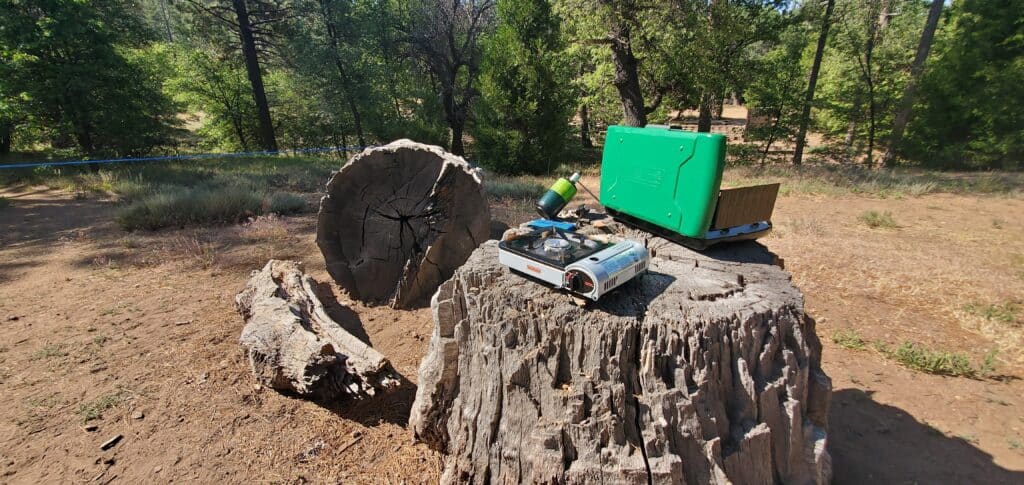
You want to bring essential gear, but not too much gear.
The temptation is often to fill every available space in and on your car or truck. It’s much better to start off very simple, and then with experience determine what you do and don’t need. There are very good reasons for this:
- Packing a lot of gear is time consuming and stressful, which can take away from the experience.
- Your vehicle has a limited cargo capacity (both in terms of weight and storage room). Exceeding either of these will cause problems, such as excessive wear and tear on your rig and possible mechanical failures.
- Gear can be expensive. Don’t let the cost of fancy overlanding and off-roading gear deter you from your adventures. Put the adventure first and the gear second.
2. Go fewer places
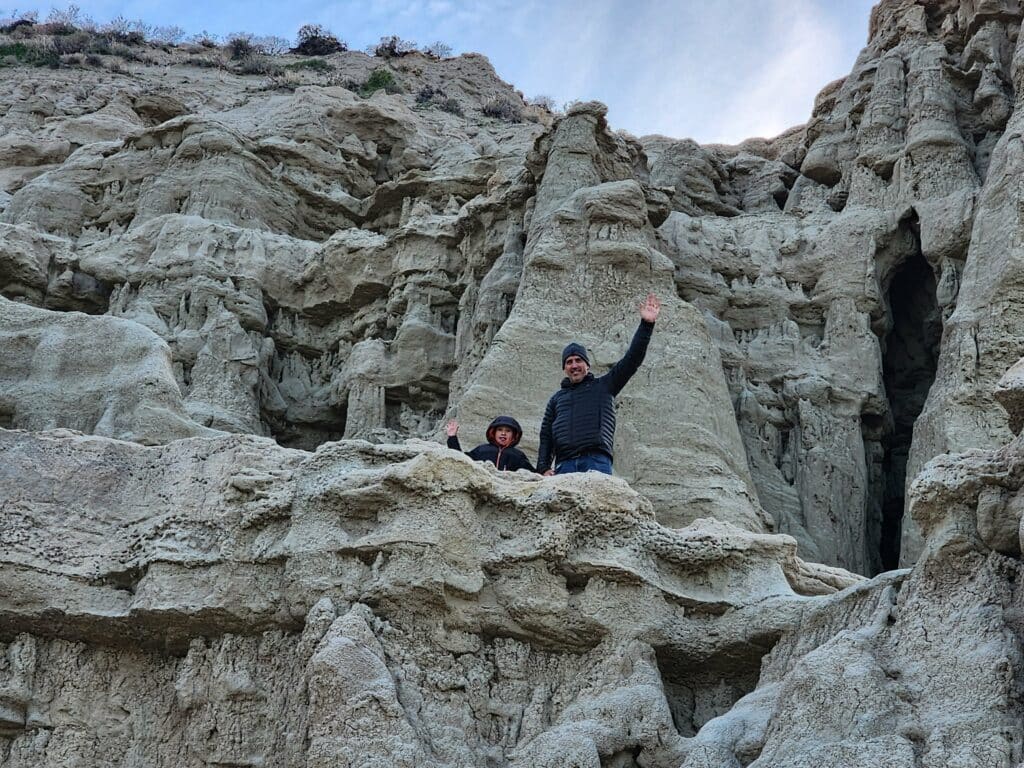
Planning fewer stops lets you spend more time enjoying people and places and less time on logistics and driving.
Overlanding isn’t about driving. Don’t get me wrong, I like driving. But the greatest rewards from exploring new places come from taking time to really enjoy and appreciate the places you are visiting. This includes taking in the natural environment and the people and cultures of new places. When you plan an adventure, make sure you leave time to enjoy yourself.
Too many stops at too many places can become a scramble. It means setting up and taking down camp multiple times. It doesn’t leave you any time to recuperate from long drives and physical exertion. It means you are always focused on getting from point A to point B and don’t have time to take pleasure in those places and the surprises you’ll find in between.
3. Share the work
I’m highly susceptible to the myth of rugged individualism, which means I tend to want to do everything myself. Maybe it’s a macho male thing or a symptom of watching too many cowboy movies as a kid. But taking on all of the tasks of planning and executing a trip is exhausting and, perhaps even worse, inefficient and dangerous.
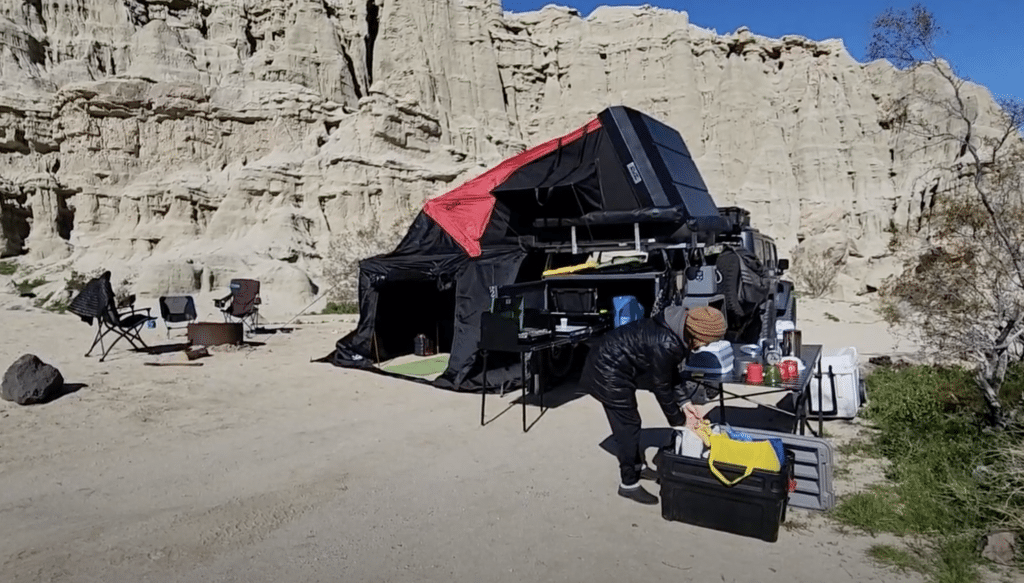
Splitting the work is key to keeping your energy up, and helps everyone feel involved.
When I’m tired, I forget things and make mistakes. Maybe I leave a propane tank open or a piece of expensive gear on the roof of the Jeep. Maybe I forget to put the truck in park…yes, I have done this (several times).
It’s much better to work with other people on the trip on planning, logistics and sharing work during the expedition. Turns out people want to help out and be involved. It’s part of the camaraderie and it makes everything go more smoothly.
4. Eat well (But prepare ahead of your trip)
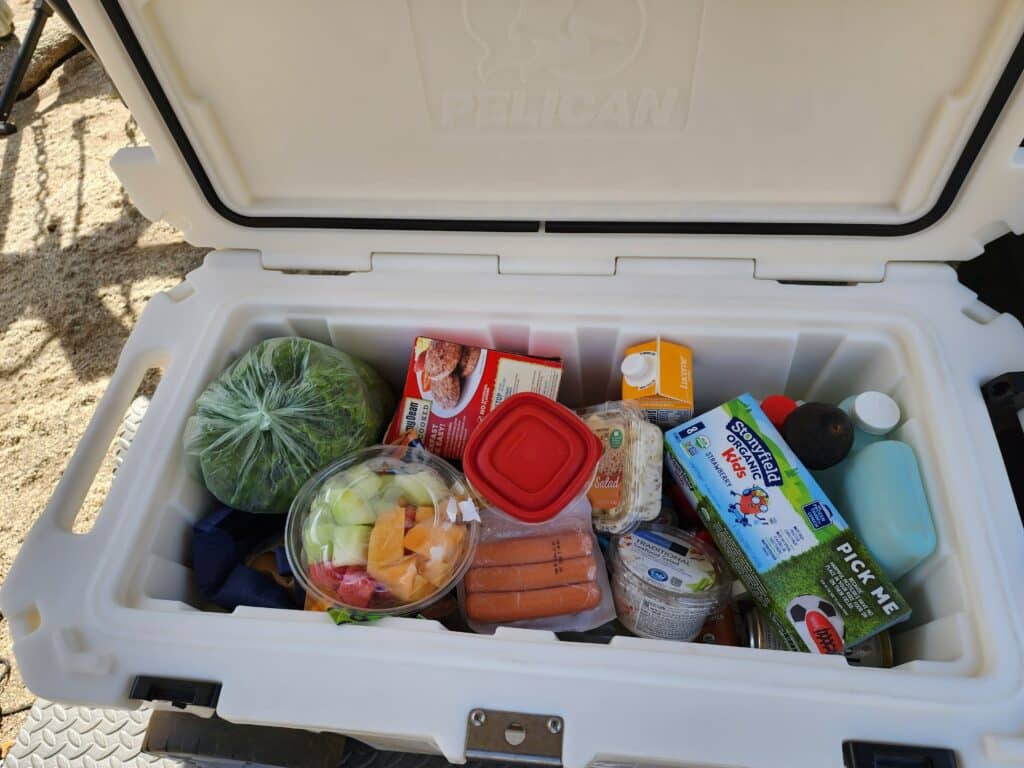
Careful food planning elevates a trip, bringing creature comforts into the backcountry.
When it comes to camp cooking, I’ve gone to extremes in two directions: super spartan and super foodie. One advantage of camping from a vehicle over say, backpacking, is the ability to have a more robust kitchen. You aren’t going to carry a two burner stove on a backpack trip, but one will fit easily in your overland rig. So you can cook delicious food–and not have to eat freeze dried meals from a bag.
The key to eating well in the backcountry is preparation ahead of time, so that you don’t have to spend hours cooking when you could be kicking back and enjoying your surroundings. I like to chop, mix and season everything I can in advance, so it’s dead easy to prepare in camp. It probably goes without saying, but you’ll find many tasty but easy to make recipes here on Chef Corso’s site.
5. Have a emergency plan and gear
When you visit remote places, you take on a certain amount of risk. To be honest, I’ve been lucky on this front. Knock on wood, I guess. When I first started exploring the deserts and mountains here in Southern California, I didn’t really have much in the way of a backup plan if things went south. It was a rookie mistake – one that’s fairly common among people first getting into overlanding.
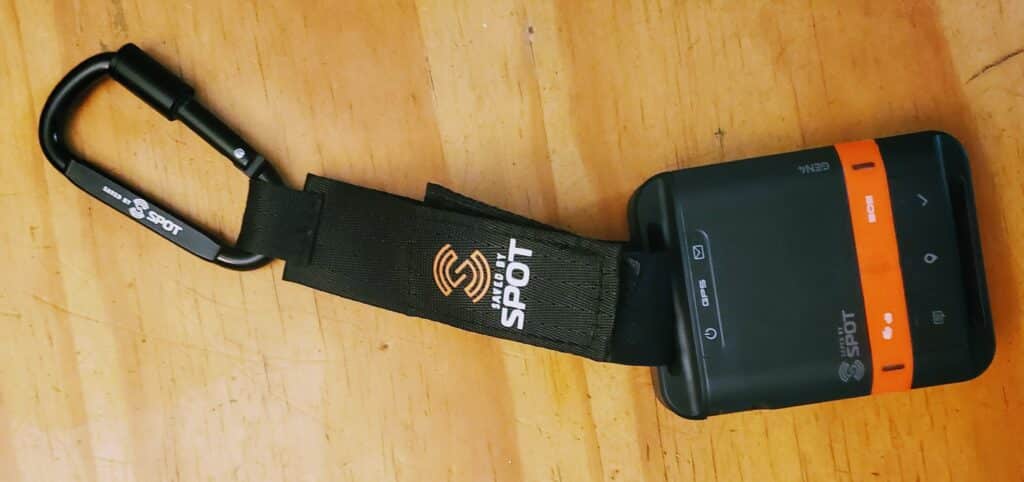
It’s important to prepare for emergencies, including having a plan and some key equipment. Get a basic vehicle recovery kit (a shovel and good jack for changing tires is a great start), in case you get stuck. You’ll also want a first aid kit and some basic first aid training. Also, tell people where you are going and when to expect you back. I also now carry a satellite messenger device (mine’s a SPOT), in case I need to call for help. Not mandatory, but highly recommended.
Conclusion
Like any activity, overlanding is something that you grow into with experience. You gain knowledge, skills and equipment over time that will progress you far beyond the basics I’ve shared here. Hopefully, though, this helps you set out on your first adventure–and that’s the most important part.
Categorized in: News, Packing / Equipment

